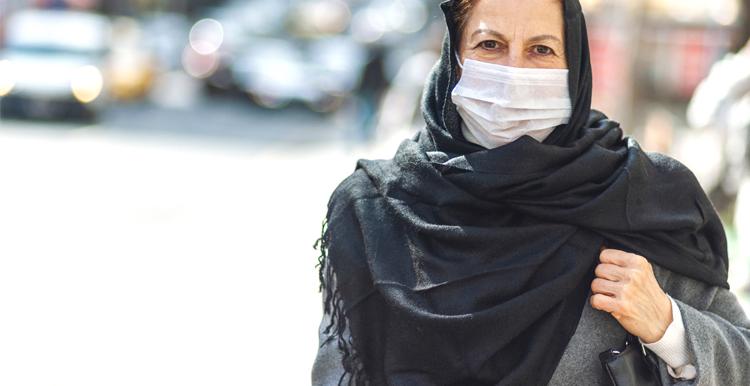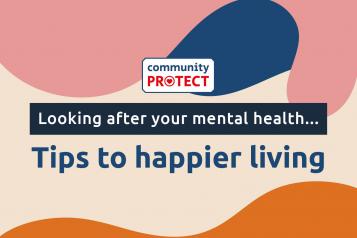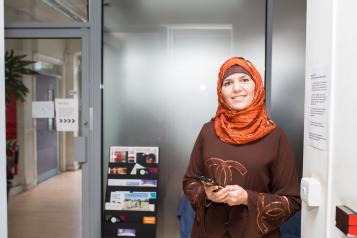Healthwatch Haringey hears women's feedback on GP and mental health services

Roj Women’s Association works with Turkish and Kurdish women, and MEWSo works with Middle Eastern, North African and Asian women.
Our aim was to engage with women from these communities on issues of health and social care, exploring their experiences and capturing feedback, with a view to improving services.
How we worked with Roj Women and MEWSo
The Roj Women focus groups were in person and held at the Selby Centre and the Kurdish Community Centre, and the MEWSo focus groups were online and held on Zoom. Interpreters were used at all the focus groups to ensure they were accessible to all. The MEWSo service users were Iranian women whose first language was Farsi.
GP services: Key findings and recommendations
Findings
- There was a lot of dissatisfaction around GP services to start with, and the level of unhappiness increased dramatically once the coronavirus pandemic began.
- Women felt they were being discriminated against if they could not speak English well, or if English was a second language.
- Women said GP practices invite interpreters who speak a similar but different language or dialect as the patient. This means interpreters and the doctor cannot understand the patient correctly.
- Women feel there is too much time pressure on doctors, and doctors are forced to speak fast. This means people with English as a second language find it difficult to understand them.
- Women could only get phone appointments but they preferred face-to face appointments. It was harder to explain and make yourself understood on the phone when the doctor cannot see you and you cannot use body language.
- Women reported the practice sometimes didn’t pick up the phone, or there were long queues, waiting for the call to be answered.
- Digital exclusion is common, especially in older women, and is linked to the language barrier.
Recommendations
- Unconscious bias (anti-racism) training for receptionists, practice staff and GPs to avoid discriminatory attitudes and practices towards those with English as a second language.
- Polite friendly helpful receptionists who have completed customer service training, so they are supporting and helping people, not acting as a barrier preventing people from seeing a GP.
- Reinstate face to face appointments.
- Provide good quality interpreting services for all who need them.
- Be mindful of digital exclusion and provide alternatives for those who have no access to the internet or do not know how to use it.
I’ve been dealing with a pain for two years, and I went there [GP practice.] They didn’t have an interpreter, and they discharged me. I couldn’t see the doctor.
Mental health services - Key findings and recommendations
Findings
- Women had done many things for themselves, and as a group, to help manage their own mental health and wellbeing and to help get them through this difficult time.
- They said GPs had very little time to listen and would often just prescribe anti-depressants. They wanted more time for the GP to listen to their issues, to be taken seriously, and to be given a range of options in terms of treatments.
- Women wanted better access to counselling, talking therapies and physical activities.
- Where talking therapies were offered, these were insufficient and women regarded this support as ‘temporary’.
- Women felt there was a clear benefit from activities around group physical exercise and community socialising.
- There was some awareness of the mental health support available in the voluntary sector, such as MIND, but most women did not mention any alternative to the GP as a first port of call.
Recommendations
- GPs should explore a range of treatment options with patients, not just anti-depressant medication. This should include counselling, talking therapies, physical exercise, and social/group activities.
- Free physical activity sessions should be funded to make them accessible to all, or vouchers, discounts, leisure passes etc. should be provided to make these services accessible to all who need them to support with their mental health.
- Free Community Centre activities should be provided as a means of supporting people’s mental health as they combat isolation and loneliness, bring people together, and build networks and friendships. Making these available for free, with no charge at the point of use, would make these services accessible to all.
- Mental health support services, and how to access them, should be promoted and publicised, through grassroots and community networks. These women should be made aware of mental health support services like MIND in Haringey, local phone helplines and local crisis lines, and local grassroots and community groups.
- GPs should refer women with mental health issues to social prescribers, as they have more time to listen to the patient, and to develop a holistic care plan, based around the needs and preferences of the patient.
These findings provide valuable insights into the multiple barriers women from Middle Eastern background face across Haringey. We hope the recommendations in this report are taken into consideration by local healthcare teams and policy makers so culturally appropriate services are embedded and service uptake maximised among racially minoritized women in Haringey.
Our clients and the team at Roj Women, conclusively agreed that the partnership was a valuable and fantastic opportunity, which made our needs and voice heard. Focus groups were very beneficial for our internal development and they gave us a better understanding of our service user's challenges in accessing health services. The feedback from the participants was quite positive: 'They felt valued and appreciated to have the opportunity to express the challenges they were facing through and post the pandemic'.
Downloads
Presentation: GP and mental health services in Haringey. Feedback from women in diverse communities

